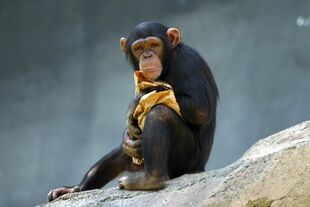Dȳñes: Difference between revisions
m (Changed number-of-syllables category markup) |
No edit summary |
||
| (3 intermediate revisions by the same user not shown) | |||
| Line 1: | Line 1: | ||
{{lexeme|High Valyrian}} | {{lexeme|High Valyrian}} | ||
{{phrasebook|hval|Basic}} | {{phrasebook|hval|Basic}} | ||
===Etymology=== | ===Etymology=== | ||
{{Project:Picture dictionary/hval:animal}} | |||
{{invis}} | {{invis}} | ||
| Line 41: | Line 41: | ||
{{cln|hval|2-syllable words}} | {{cln|hval|2-syllable words}} | ||
{{c|hval|Swadesh list}} | |||
Latest revision as of 08:25, 17 October 2024
High Valyrian
| High Valyrian Phrasebook | |
|---|---|
| This entry is part of the phrasebook project, which presents criteria for inclusion based on utility, simplicity and commonality. For other High Valyrian entries on this topic, see Basic.
| |
Etymology
| Picture dictionary | ||||||
|---|---|---|---|---|---|---|
| ||||||
|
| From an invisible proto-language. |
|---|
| The etymology of this word comes from an invisible proto-language. If you're confident you know the etymology, feel free to add it, but reader beware should the etymology be added by someone other than the creator of the language! |
Pronunciation
(Classical) IPA(key): /ˈdyːɲes/
Noun
dȳñes (fourth declension solar, nominative plural dȳñesse)
Inflection
| Singular | Plural | Paucal | Collective | |
|---|---|---|---|---|
| Nominative | dȳñes | dȳñesse | dȳñin | dȳñer |
| Accusative | dȳñī | dȳñī | dȳñini | dȳñeri |
| Genitive | dȳño | dȳñoti | dȳñino | dȳñero |
| Dative | dȳñot | dȳñinte | dȳñerte | |
| Locative | dȳñē | dȳñinne | dȳñerre | |
| Instrumental | dȳñose | dȳñossi | dȳñisse | dȳñerze |
| Comitative | dȳñome | dȳñommi | dȳñimme | dȳñerme |
| Vocative | dȳñys | dȳñesses | dȳñisse | dȳñerze |
Derived Terms
Descendants
Creation and Usage Notes
| You know, when I create a word, I like to feel like I've come at it from every possible angle at the time I coin it. I may discover later that I made a mistake, or decide that I should have done something differently, but so long as I did my best with it at that moment, I accept it and move in. This word, though...
Naturally, when one is doing translation under the gun (a permanent state when working on a television show), there's pressure to finish, whether you've hit on the perfect word or not. I created this word for some damn translation—I can't remember which at this point. (Oh. Ha. I needed it for Astapori Valyrian. How about that...) No matter how much I fussed with it, I never once could get settled with this word. I'm still not settled. I don't like it, but I don't quite hate it. And even if the High Valyrian form of the word never ended up in the show, it's now wound up in some essay on High Valyrian names for animals in the Universe of Ice and Fire, so it's kind of stuck. The issues are numerous. About the only thing I got right with this thing is the declension class. It's good it ends with -es (like zaldrīzes). Aside from that, I'm not sure the word should exist at all. As I have it, this is some basic term for "animal". As you may know, George R. R. Martin intended High Valyrian to be the Latin of his universe, so it's impossible to coin a word for "animal" without thinking of how Latin came up with a word for "animal". The relationship between "animal", "animate", "animacy", "animus", etc. is no accident. An animal is, essentially, an animate thing—that which has been given life. The word derives from animus, which itself derives from an Indo-European word for "breath": the ability to breathe being connected with life. That's a damn etymology. What the hell is dȳñes? Nothing, as far as I can tell. Furthermore, the root is problematic. The long ȳ and the ñ are hopelessly pretentious—and unpleasant to pronounce. It's a weighty word to enjoy any kind of regular use—and, indeed, I almost never use it, so there's that. It's a word that looks unnecessarily gaudy and regal (in fact, it reminds one a bit of dārys and dārōñe). Naturally, these are my associations, rather than the one of a native Valyrian speaker, but that doesn't help me feel any better about it. Now that I look back and see this was done for an Astapori Valyrian word I have even less of an excuse. The word dȳñes could have meant just about anything in High Valyrian. It simply could have come to mean "beast" in Astapori Valyrian. Instead I took the lazy way out because I wanted my Astapori word so I could move on with the translation. Anyway, this is why I remain unsettled with this word. Every time I look at it I'm disgusted with myself. It's an unpleasant memory I don't wish to revisit. Dȳñes... What a stupid sounding word... Ugh. -David J. Peterson 03:06, 17 May 2020 (PDT) |
- High Valyrian phrasebook
- High Valyrian phrasebook/Basic
- Visual dictionary
- High Valyrian terms with IPA pronunciation
- High Valyrian lemmas
- High Valyrian nouns
- High Valyrian terms with usage examples
- High Valyrian solar nouns
- High Valyrian nouns of fourth declension
- High Valyrian terms with creation and usage notes
- Hval:Animals
- High Valyrian 2-syllable words
- Hval:Swadesh list






